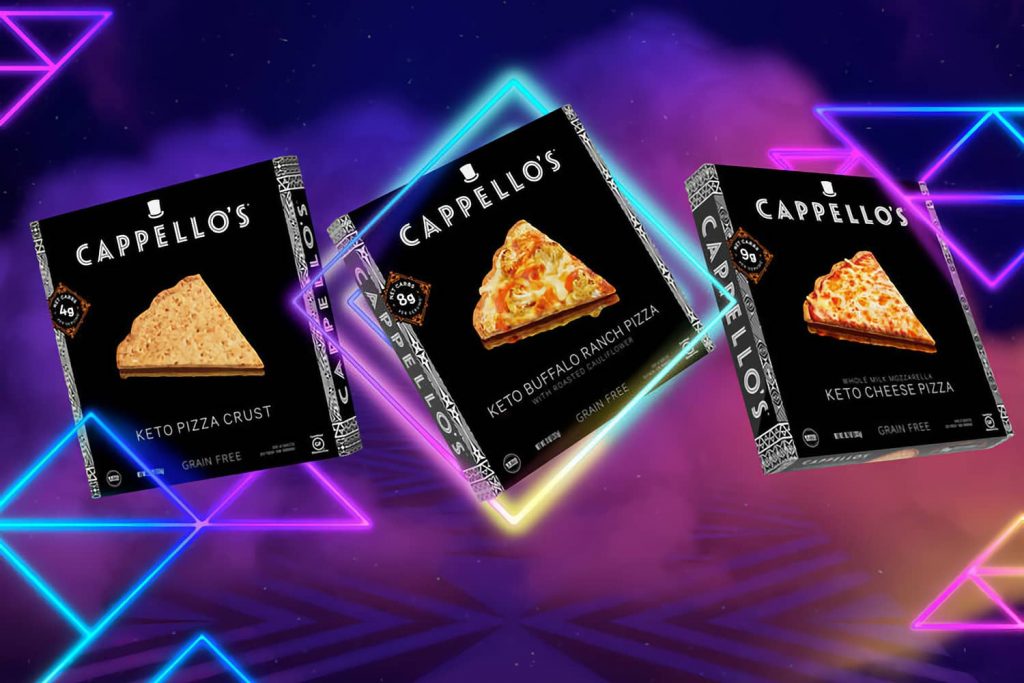More than half of Americans (51%) made a healthy diet in 2020, according to an Ipsos poll for Urban Plates. In an effort to help consumers achieve these goals, brands first thought about how to make the “right” basket of staples. We have already written about the trends taking place in the dairy, meat, soft drinks, coffee and bakery markets. We continue our story about useful keto innovations in the bakery industry.
Last Year Analyses
We can safely say that bread has revived because of the pandemic in 2020.
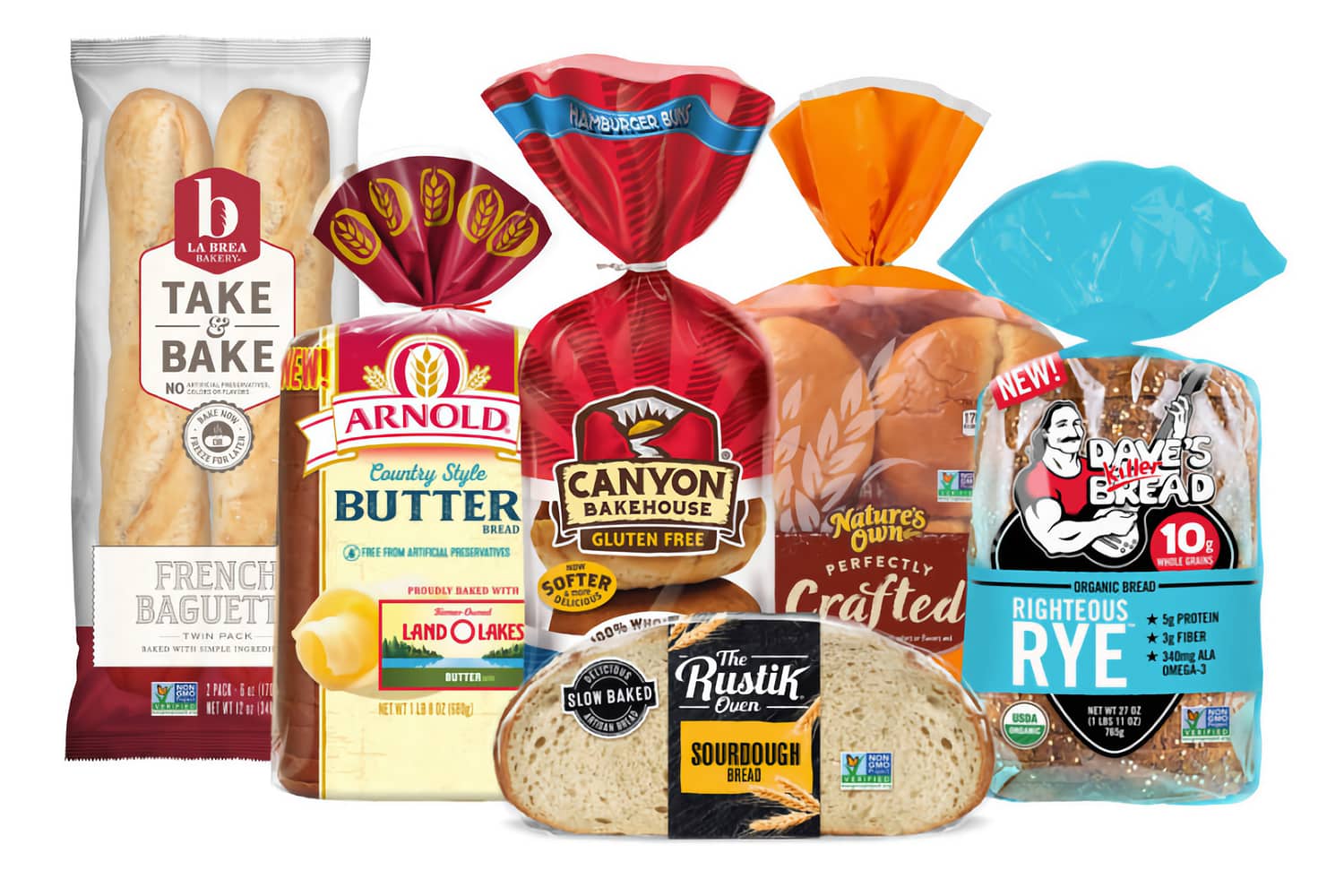
If before the lockdown in the relatively «sleeping segment» innovations could be counted on one hand, last year almost all bakers in the US and Europe either presented their new products or planned a significant release of such new products in 2021 and further.
French baguettes, popular with American buyers, now have tapered ends and added flour powder. The inside of the bread is lighter in color and the hydration is increased. The renewed French bread got a darker crust and a much lighter inner part, and it also began to be dusted with flour.
Low-calorie keto breads, especially those made with sourdough, are in particular demand, as well as grain-free breads with plant ingredients and seeds. This has become a powerful trend supporting the global trend towards healthy eating. Following each other, all the bakers released their «wholesome loaves» on the shelves, which was appreciated by the consumers.
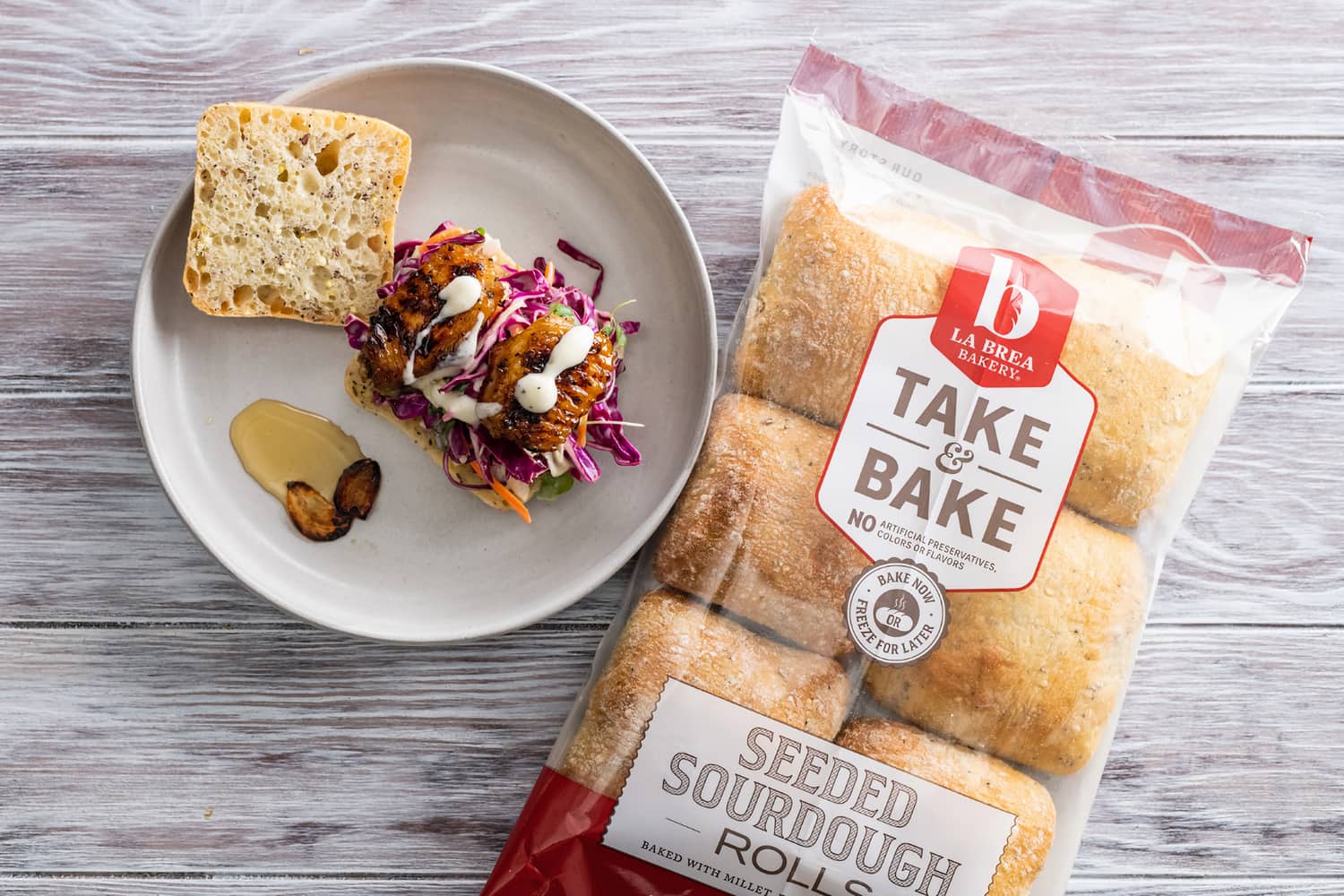
For example, sales of Take&Bake bread from La Brea Bakery, made with rustic white sourdough, grew by 28% compared to 2019. This position overtook the company’s usual whole grain products, becoming No.2 in Kroger, after the French baguette leader.
In addition, industry players have improved their packaging graphics. Towards the end of the difficult 2020, the lion’s share of manufacturers carried out innovative restyling. The new packaging began to offer consumers more information about the product, including flavor profiles, new recipes, compatibility with wine and beer, and some decided on a radical rebranding, boldly updating the identity.
These changes immediately led to positive growth in the entire bakery segment. Sales of fresh bread for the 52 weeks ended January 24 were $10.1 billion, up 10% from a year earlier, according to Information Resources, Inc. Unit sales rose 6%, and each of the top US bakery companies tracked by IRI posted higher sales for virtually all of their bread brands.
Powerful Trend
Keto bread is becoming attractive to more and more consumers. Especially bread made with sourdough because it is believed to be more beneficial for the immune system due to the prebiotics naturally occurring in leavened yeast.
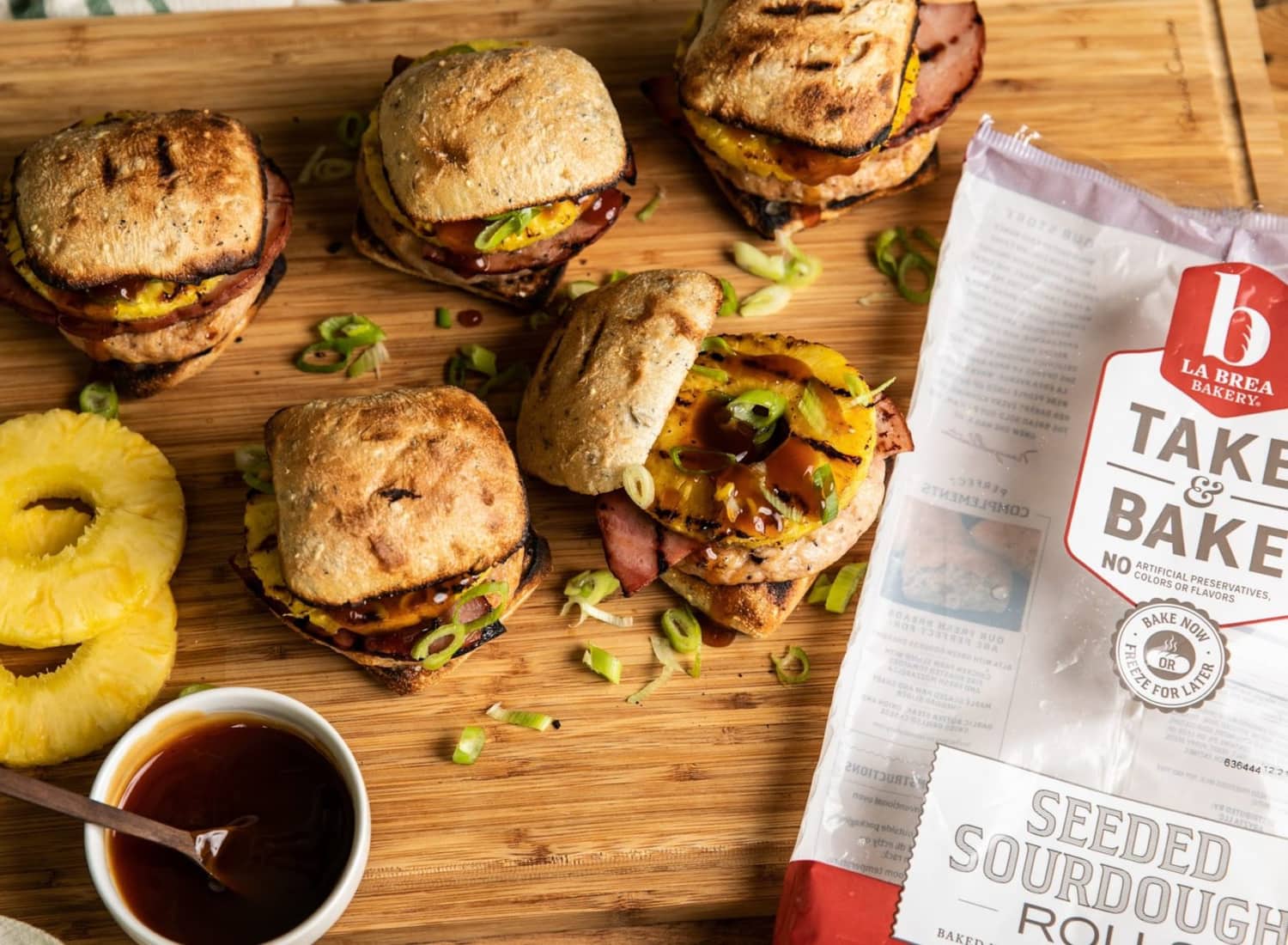
Research by La Brea Bakery shows that more and more consumers are realizing that 70% to 80% of the body’s immunity is in the digestive tract. “Because the starter culture is believed to be good for gut health, with naturally low gluten levels, it makes these baked goods more digestible,” said Christine Protsiv, senior vice president of marketing, innovation, research and development, Chicago-based Aryzta North America in an interview.
Pandemic 2020 has been a lucky year for keto and paleo friendly bread brands. The situation changed dramatically with the products where consumers did not like a specific flavor — consumer tastes have adapted, as they became confident in the benefits of bread innovation for immunity and gut health.
It turned out that the shelf with keto bread is not only the fiefdom of the young [and the arrogant]. Distinguished veterans of the industry also saw great opportunities in this trend, directing serious investments in R&D of «wholesome bread». Big brands have demonstrated that their revised strategies can compete with aggressive newcomers, further exacerbating the situation in the booming bakery segment.
The cohort of healthy baked goods is regularly replenished with new brands from both young companies and old-timers of the bread market. Everyone contributes to the development of the category in their own ways. We have selected two stories that vividly demonstrate how large manufacturers were able to differentiate in a recently dormant market, and began to grow confidently, despite unstable times.
Two completely different companies from different parts of the world have completely different views of the global trend. But their products are strikingly identical in their pursuit of catering to consumers’ desires for nutrition as well as appetizing.
Bread Bimbo Strategy

Not everyone is familiar with the Bimbo Bakeries brand. However, in the United States, probably almost everyone at one time or another has enjoyed at least one of the many products of Mexico’s largest bakery company, known in 33 countries.
The iconic fresh bread brands loved by Americans date back to the late 1800s, when the baking traditions that have survived to this day began in Mexico City.
The history of Bimbo Bakeries USA began in 1994 when Grupo Bimbo acquired a California-based tortilla company, La Hacienda. In 1997, Bimbo Bakeries entered the US bread market by purchasing Pacific Pride Bakeries in San Diego.
In 1998, the company grew again with the acquisition of Texas-based Mrs Baird’s Bakeries, the largest family-owned bakery in the United States back then. The combined enterprises were renamed into Bimbo Bakeries USA (BBU).
Between 2002 and 2009, BBU acquired the bakery business from George Weston Ltd from the west coast of the country. And in 2011, it added its largest acquisition to its portfolio — Sara Lee’s baked goods business in the United States.
Today BBU operates over 60 bakeries, employs over 20,000 employees and distributes its iconic bread brands such as Arnold, Brownberry, Entenmann’s, Freihofer’s, Oroweat, Thomas’ and Stroehmann throughout the United States.
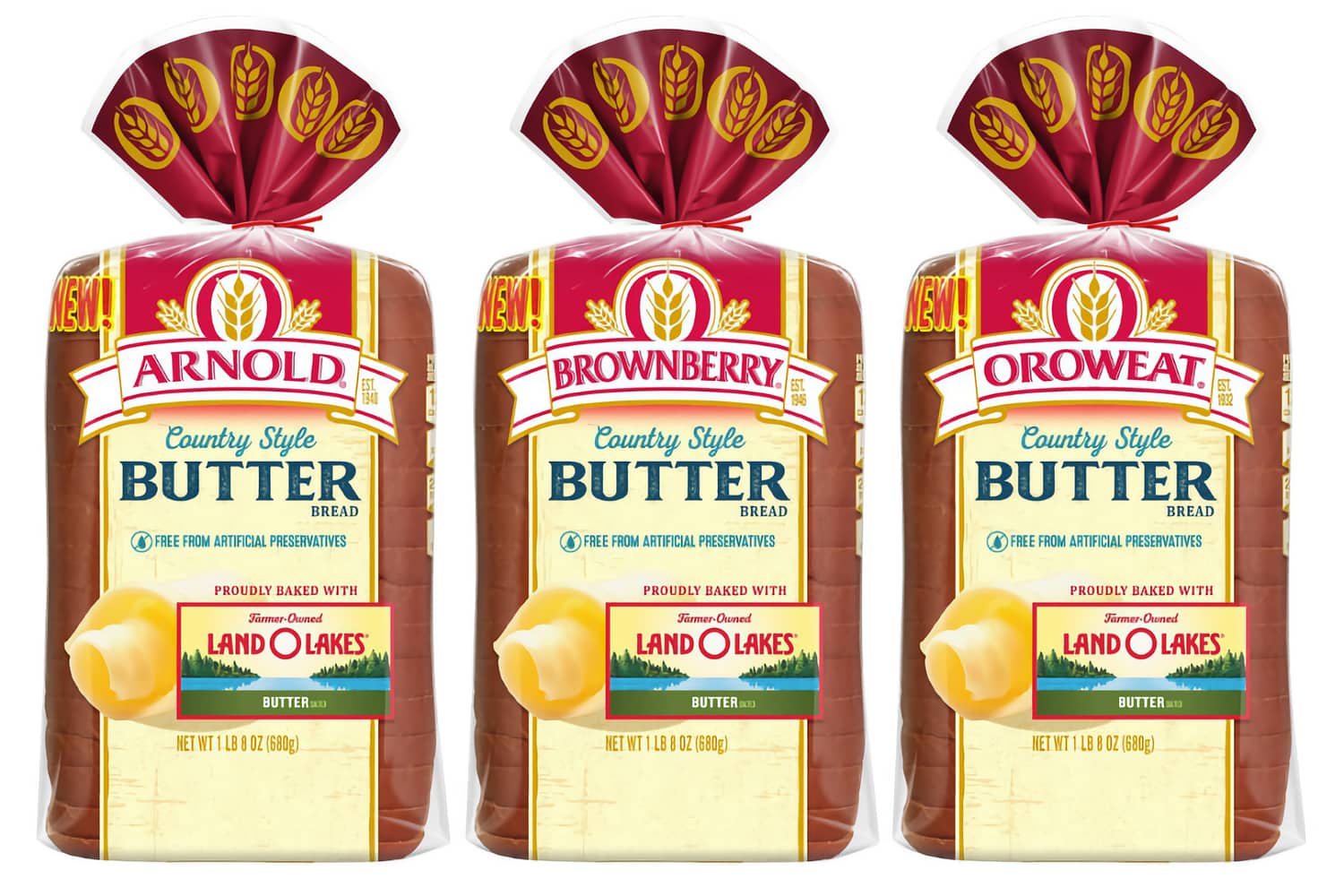
For most of 2020, Bimbo Bakeries USA has stepped up the introduction of its new products to store shelves. In October, BBU announced a partnership with Land O’Lakes, Inc. to introduce Arnold, Brownberry and Oroweat country-style butterbreads, baked in partnership with a leading butter brand. The new line is baked with simple ingredients, including whole milk and sea salt, and is free from artificial preservatives, colors and flavors.
“As the largest premium bread brand in the country, we are delighted to partner with Land O’Lakes to improve the classic bread and butter blend,” says Jessica Grain, Marketing Director of Grupo Bimbo SAB de CV, a BBU subsidiary.
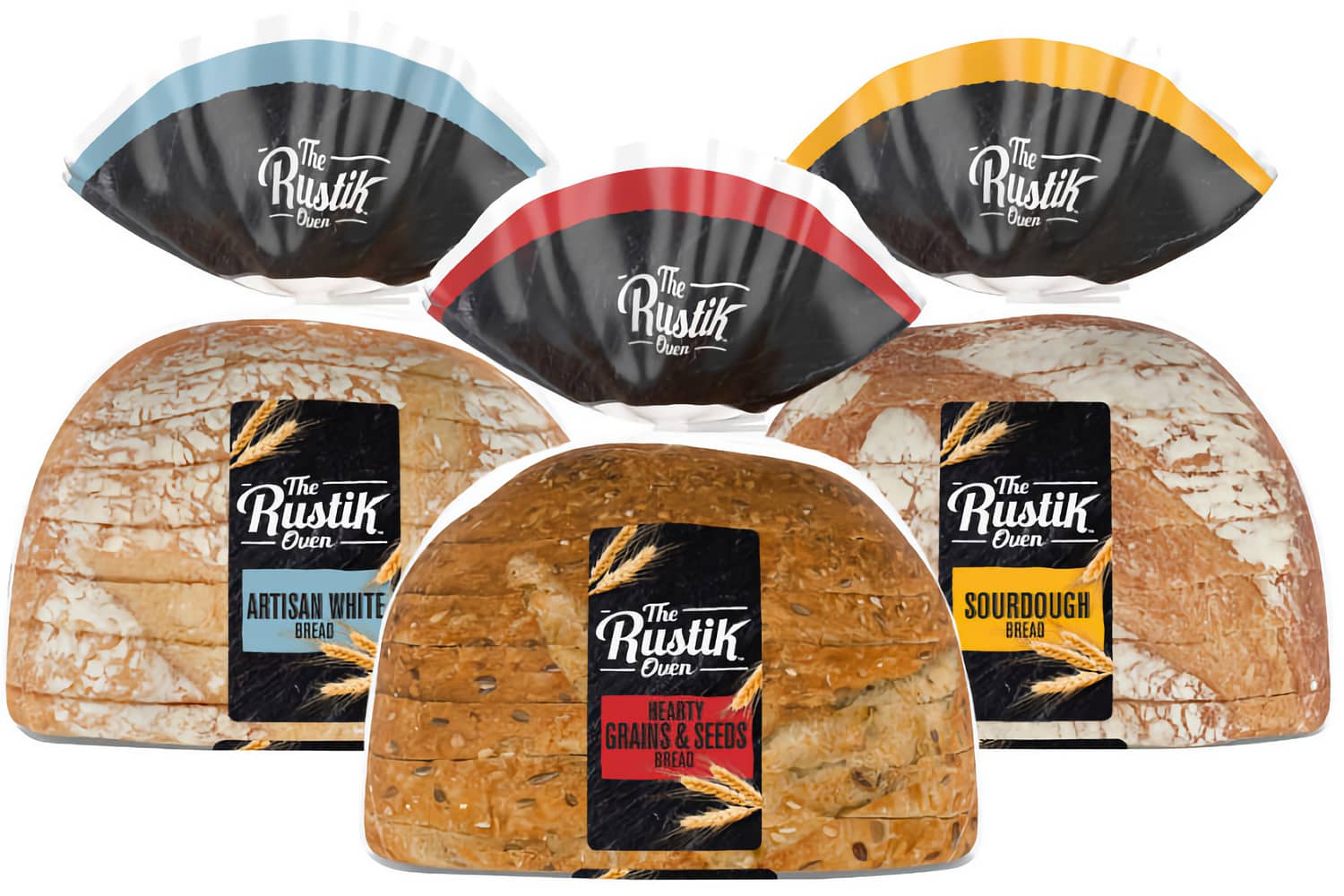
In October 2020, BBU announced the launch of a new brand of homemade bread, Rustik Oven. A test release in California in 2019 was a runaway success. Now 3 SKU Rustik Oven — Leavened, Artisan White and Hearty Grains and Seeds have become available in hundreds of thousands of outlets across the country.
The bread is non-GMO certified and made without any artificial colors or flavors. Rustik Oven, a low-calorie sourdough bread, is slowly baked in a stone oven to ensure even baking and a crisp, golden crust on the loaf. Sourdough varieties are fermented 24 hours before baking.
Significantly, when launching Rustik Oven, BBU turned for the second time in recent years to one of its foreign markets — Spain, where an innovative production idea was developed and tested before being transported to the USA.
Rustik Oven can be purchased at grocery stores and other major retail stores across the country for a suggested retail price of $4.69.
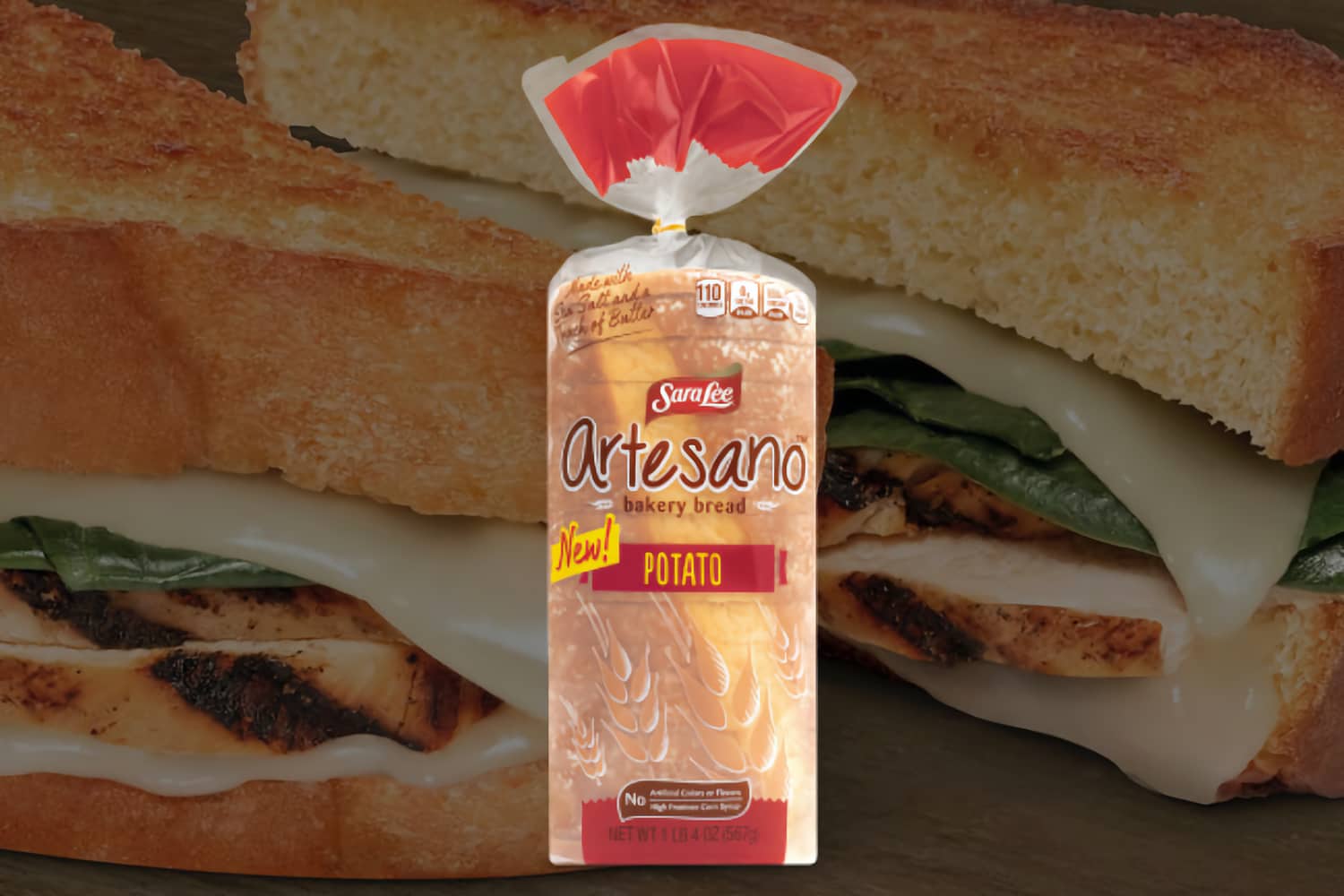
A month later, BBU launched Sara Lee Artesano Potato Bakery Bread. The bread is made up of thick slices containing sea salt, butter and the aroma of potato bread. The manufacturer relied on research showing that consumers gravitate towards more savory breads.
“As potato breads become more popular with American consumers, we hope this new addition to our portfolio will become a favorite and a source of inspiration for new family recipes,” said Ben Buch, director of marketing for Sara Lee Bread.
Bimbo’s Colombian potato bread has enjoyed the greatest success in the past five years, since BBU introduced the Artesano line in the United States under the Sara Lee brand in 2015.
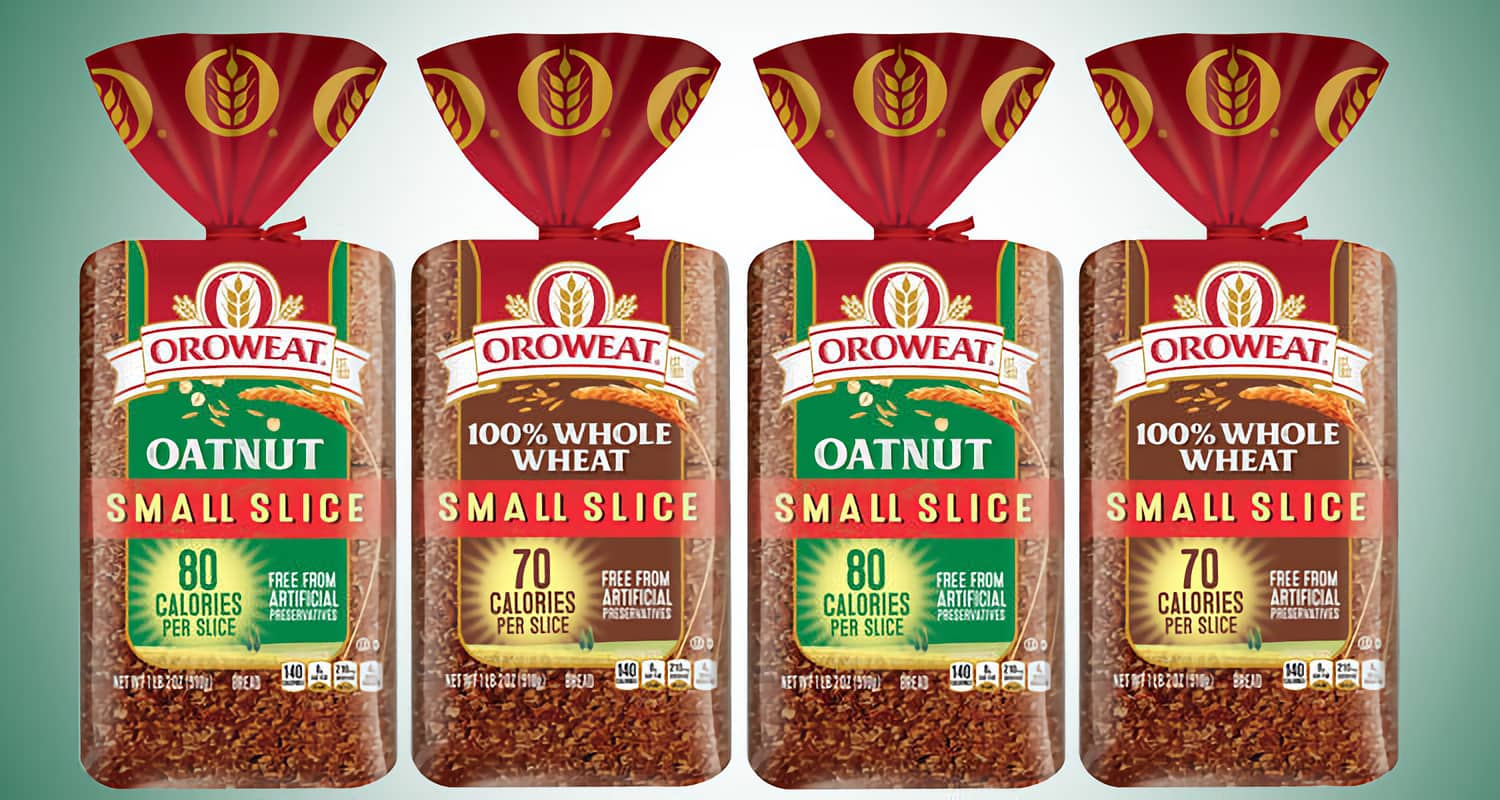
There is another novelty for the health conscious consumer from the Oroweat brand. In the Small Slice keto bread line, BBU offers consumers all the bread benefits they are looking for, but in a smaller format. Signature mini-slices of oats and nuts, as well as 100% whole wheat, can be safely enjoyed by calorie-conscious snacks. Each piece of Small Slice contains only 70-80 calories.
The novelty is made without artificial preservatives, colors or flavors, corn syrup, or high fructose content.
Oroweat Small Slice is available at major retailers throughout the United States for an MSRP of $3.49.
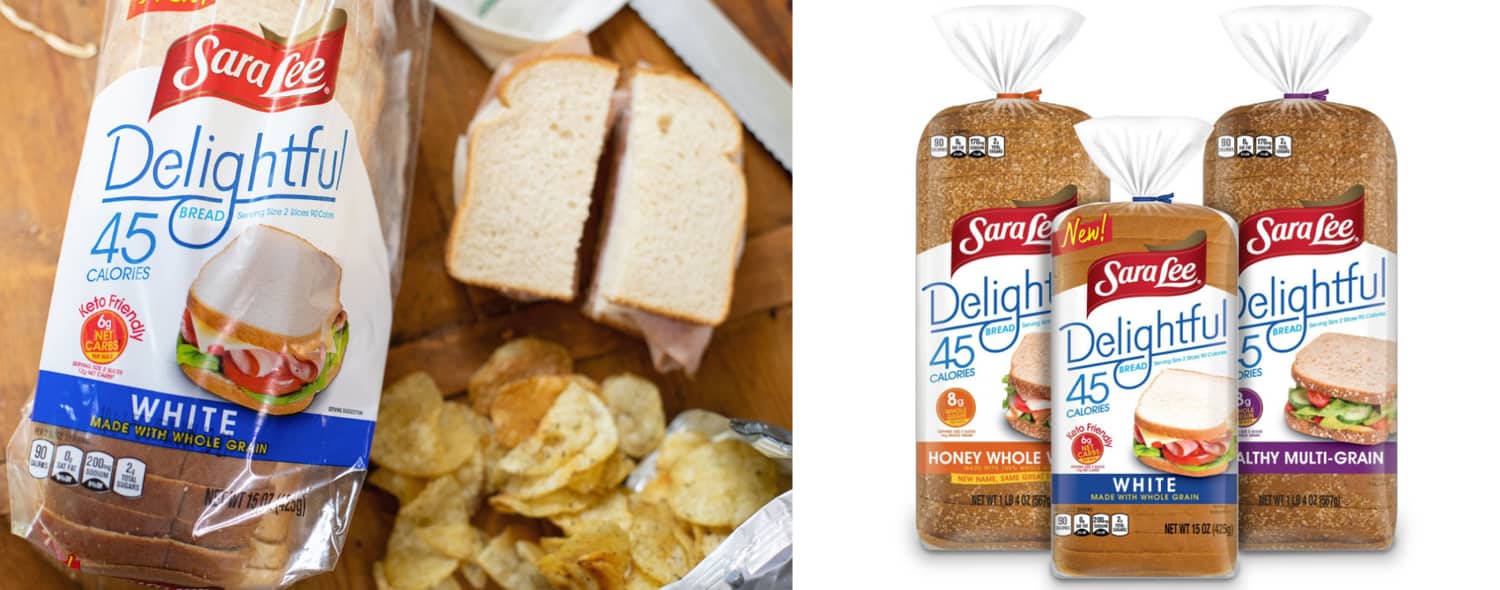
Continuing to reflect its ongoing commitment to avoiding carbohydrates, in January 2021 BBU expanded its Sara Lee Delightful line (launched in 2003 amid another diet wave) with a new keto-friendly strain — Sara Lee Delightful White Made with Whole Grain. It has just 6 grams of net carbs per slice and 12 grams of net carbs per 2-slice serving (90 calories per 2-slice serving).
In addition, BBU has also updated Sara Lee Delightful’s packaging to provide «pure, vibrant colors that more strongly reflect the simplicity of a premium product.»
“We know that diet foods are the focus of many consumers,” says Buch. “With the new bread in the new packaging, we are proving that healthy ones can also be delicious.”
The strategy of focusing on the fashion trend allowed the bread holding to end the difficult 2020th year with double-digit profits. Grupo Bimbo’s US business grew 13. The bakery giant has sold over 910 million units of its baked goods % in the United States alone.
Organic Rudi’s Choice
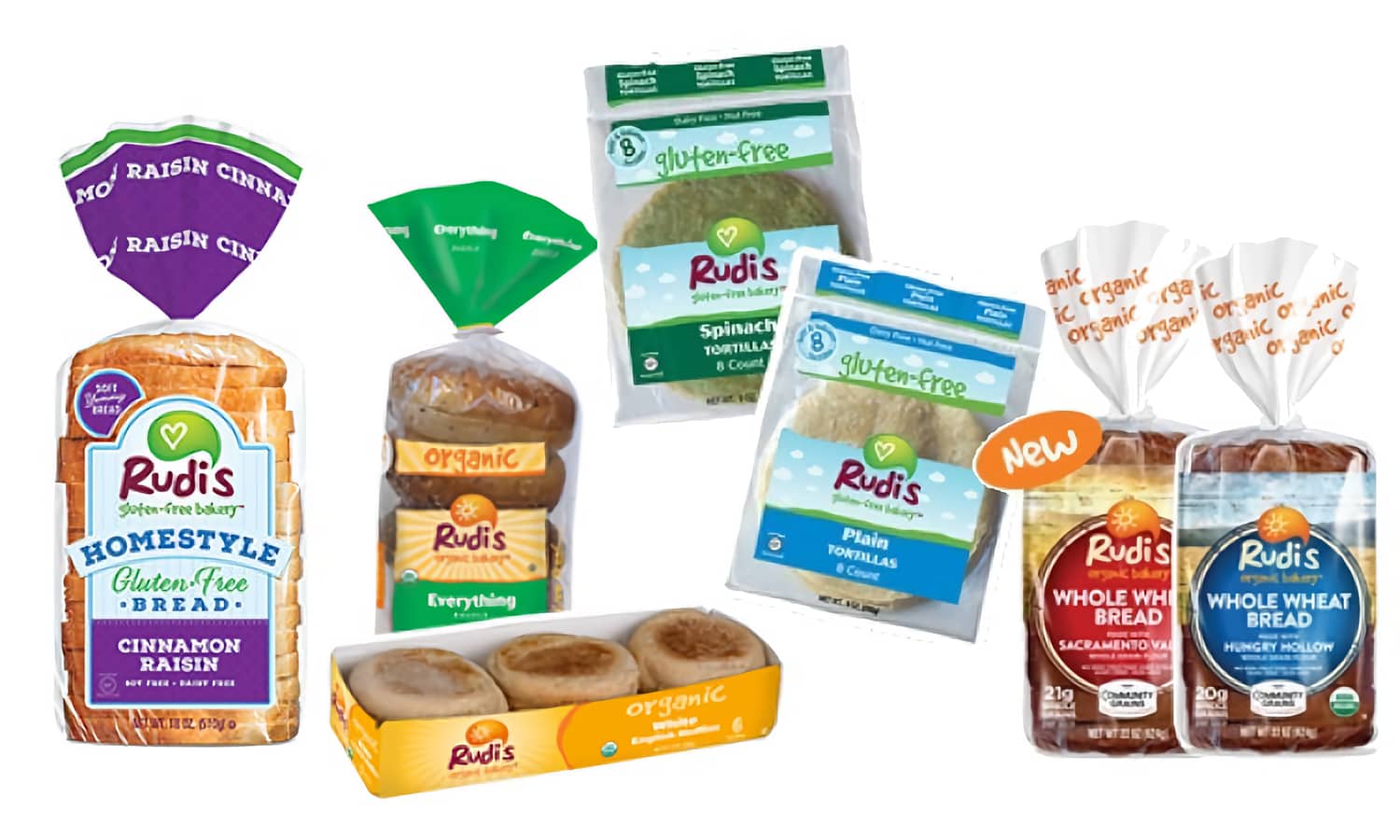
Rudi’s Bakery is a fast-paced innovation in the 2021 bread market. Once the hallmark of the national organic baking segment in the US, Rudi’s Bakery is renowned for its approach to producing small batches of wholesome bread, efficiently delivering it to cities across the country.
For more than four decades, the bakery manufacturer has produced dietary, organic and gluten-free products that promote a healthy and tasty lifestyle for their fans. The company is committed to making its prepackaged products and gourmet foods as accessible as possible to consumers in all states.
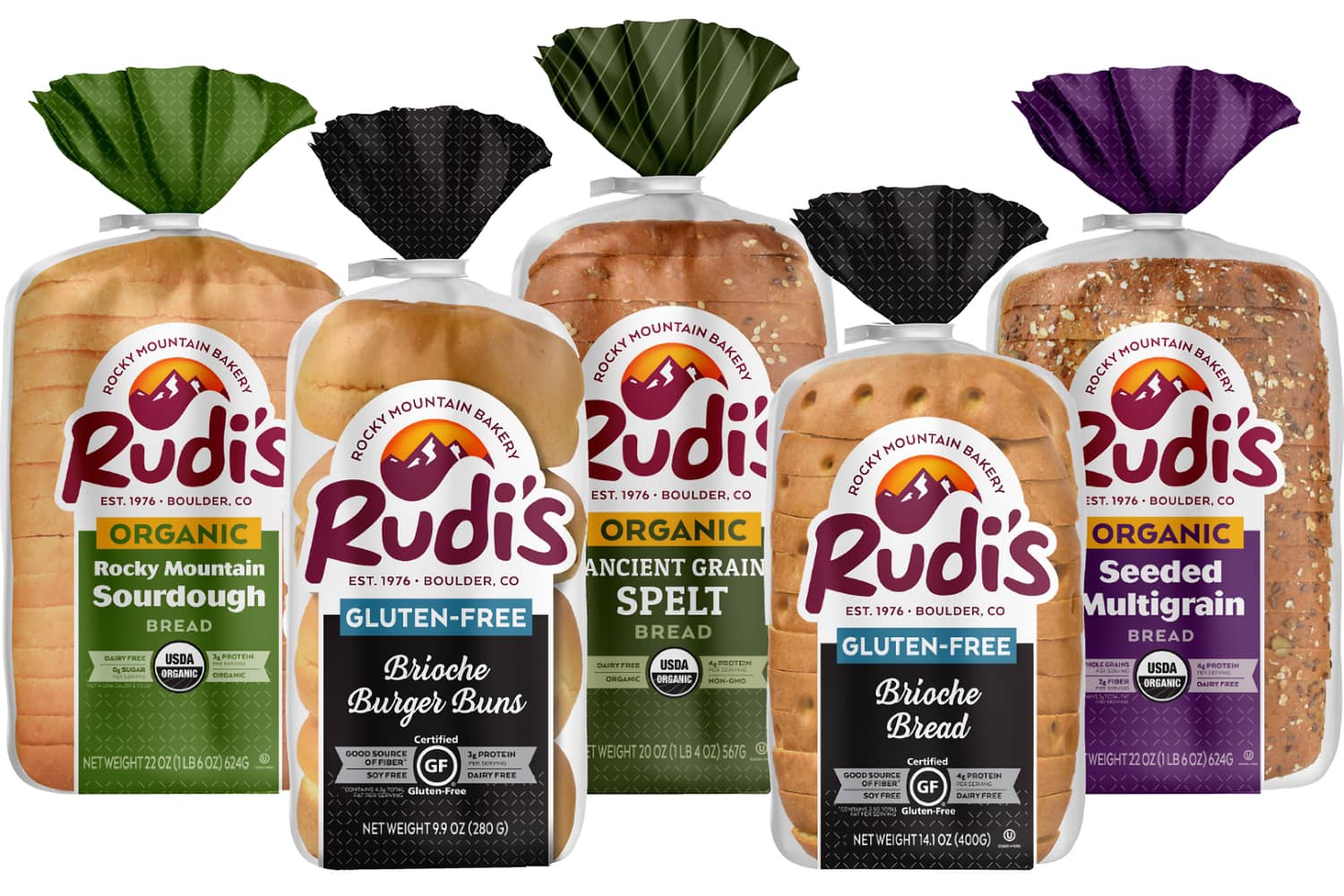
Bread brands Rudi’s Organic Bakery (renamed from Rudi’s Bakery in 2001) and Rudi’s Gluten-Free Bakery (founded in 2010) have successfully created loyal brand names targeting activists seeking to enjoy bread without compromise.
The history of Rudi’s Bakery began in 1976 when Sheldon Romer of Boulder, Colorado, opened a specialty bakery store selling homemade baked goods. In 1981, all products were certified as Kosher.
In the early 21st century, Romer changed the name of the company to Rudi’s Organic Bakery, reflecting its commitment to producing purely organic baked goods.
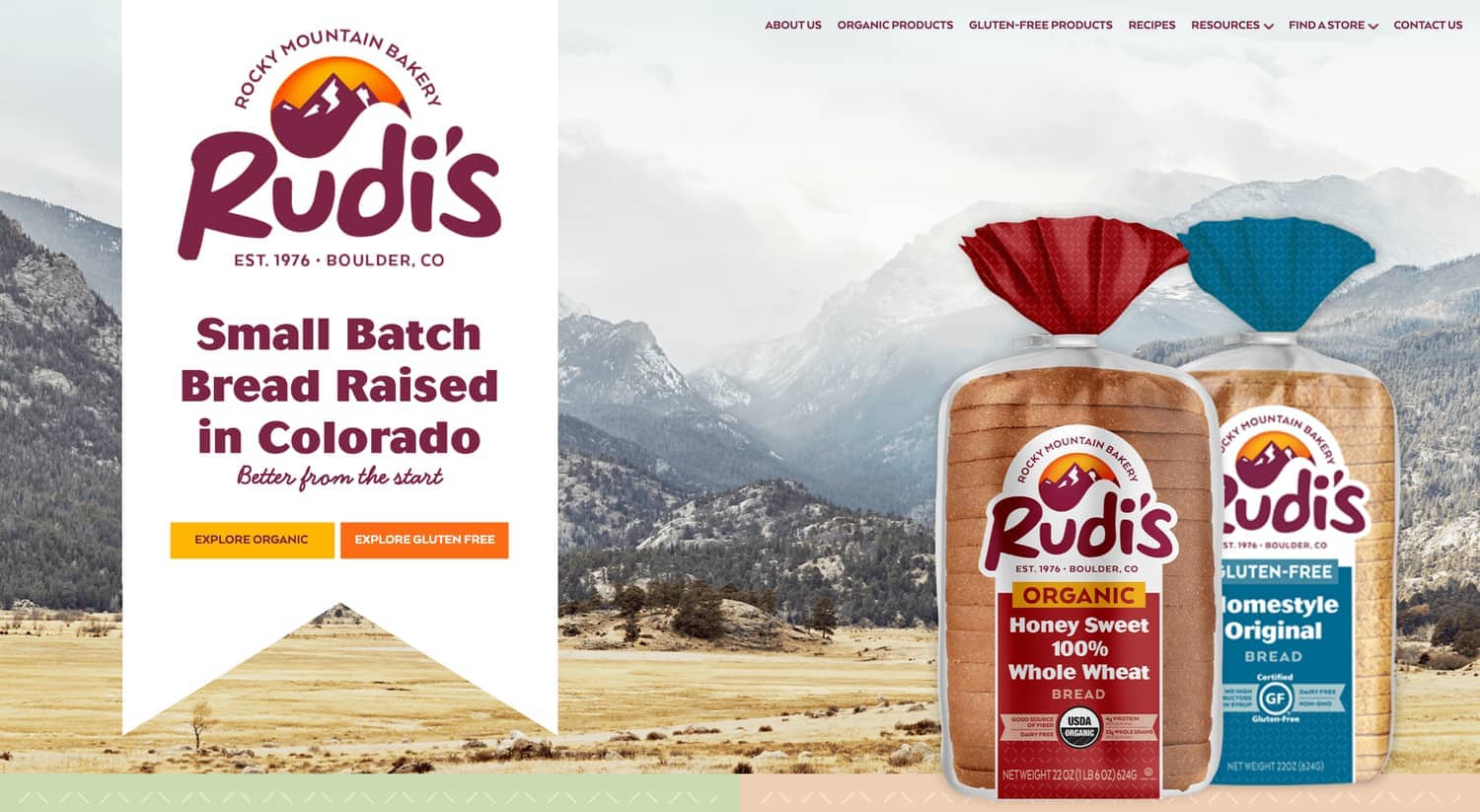
Today, Rudi’s is a leading manufacturer of USDA certified organic breads, including small batch homemade breads, English muffins, hamburger and hot dog bagels and buns, free from artificial ingredients, preservatives, trans fats and GMOs.
In recent years, the company has changed several owners. In 2005, it was acquired by Charterhouse Equity Partners. Hain Celestial was then sold for $61.3 million in 2014, before being taken over by the Irish holding company Promise Gluten Free in May 2020. The deal amounted to 100 million euros (supported by a private investment company Mayfair, whose financial participation has not been disclosed).
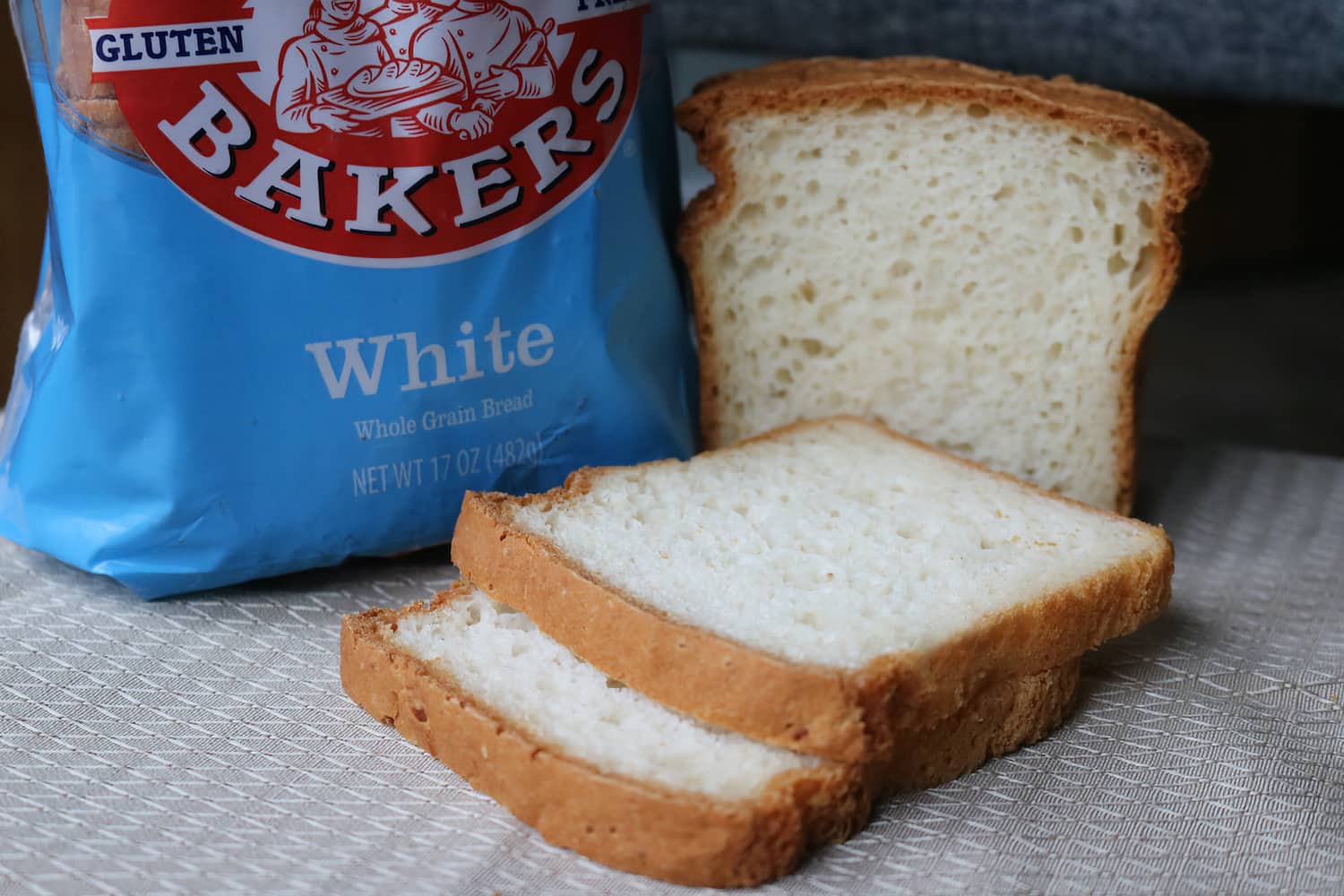
In addition to Rudi’s Organic Bakery, Promise Gluten Free also acquired Three Bakers, a Scranton, Pennsylvania-based gluten-free bread, rolls and pizza base company.
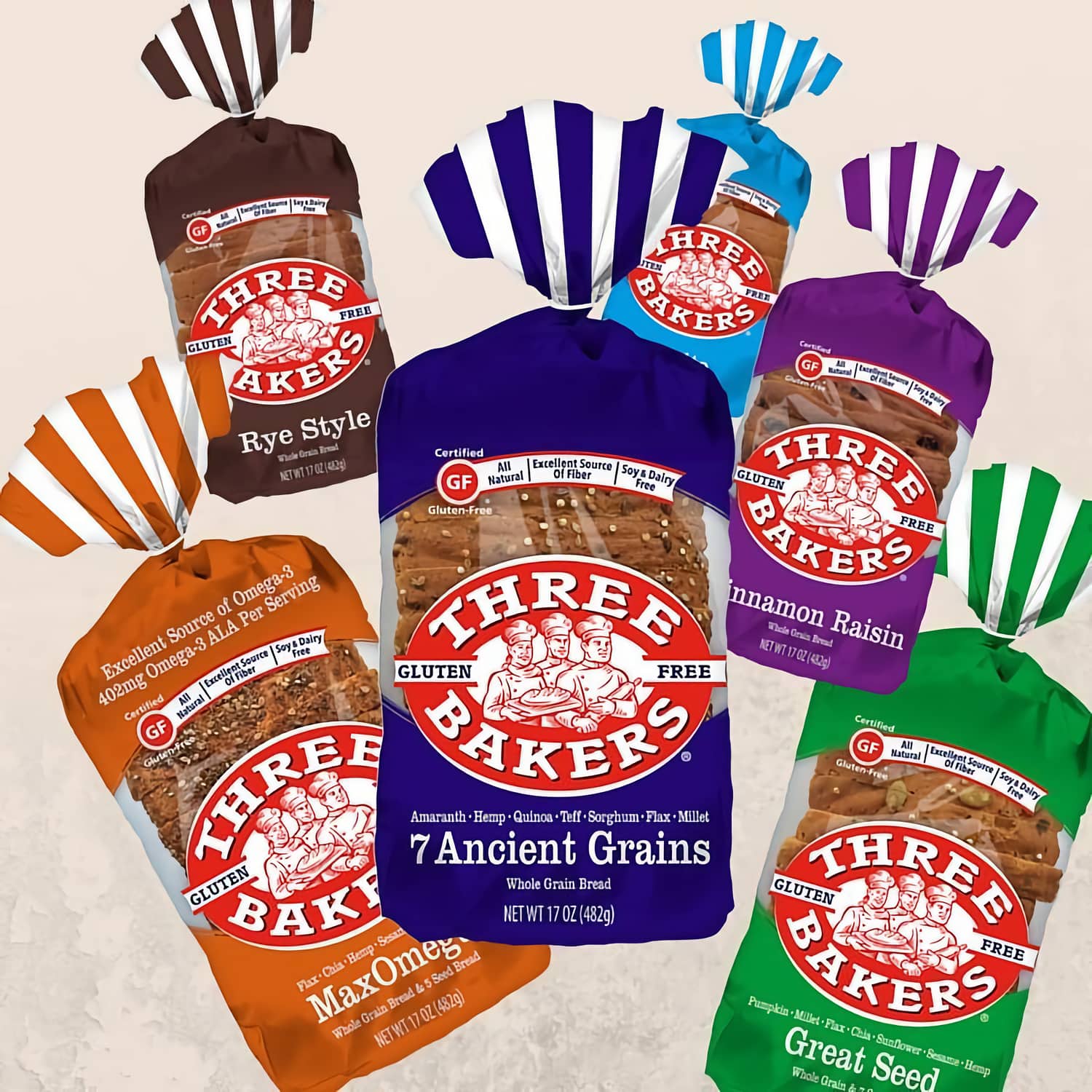
“As a result of the merger of Promise Gluten Free, Three Bakers and Rudi’s Organic Bakery, we are delighted to announce the creation of an expanded international bakery business,” said Patrick O’Sullivan, CEO of Promise Gluten Free, in his first post-merger interview. «Working together, we strive to meet the ever-growing consumer demand for high quality organic and gluten-free baked goods.»
Just over a month after the deal, in July 2020, Brian McGuire, who was recently President of Steven Roberts Original Desserts and previously Vice President of Sales at Vicorp Restaurants, Inc., was named CEO of the revamped Rudi’s Organic Bakery.
After that, Rudi’s attracted industry veterans who will develop the brand in 2021. The new leaders took charge of all key areas — finance, marketing, quality control, engineering, procurement and sales. With an updated leadership and extensive Promise Gluten-Free experience, the bakery aims to drive groundbreaking innovations in baked goods and frozen foods in the coming years.
“This is an exciting time for Rudi’s Bakery,” McGuire says in his speeches. “We are confident in the opportunities for our growth to come and hope to close the market gap by supplying simple and healthy bread and attracting more family consumers.”
The company actively kicked off 2021 by adding more than a dozen new organic, dietary, keto and gluten-free products to its portfolio. Having launched fifteen completely new products by June, the management plans to bring the total amount of healthy bread to 55 SKUs by the end of the year.
By updating the staple products, Rudi’s Bakery has completely returned to the original recipes. Organic bread was originally baked using a centuries-old practice where the dough was allowed to ferment for 12 to 14 hours before the kneading and baking process began. This long fermentation resulted in a richer flavor and texture that has become the bakery’s trademark, McGuire says.
“We use this process in our products,” says the new CEO. «The original fermentation formula really gave the foods great texture, longer shelf life, and added gut health benefits.»
More Craft
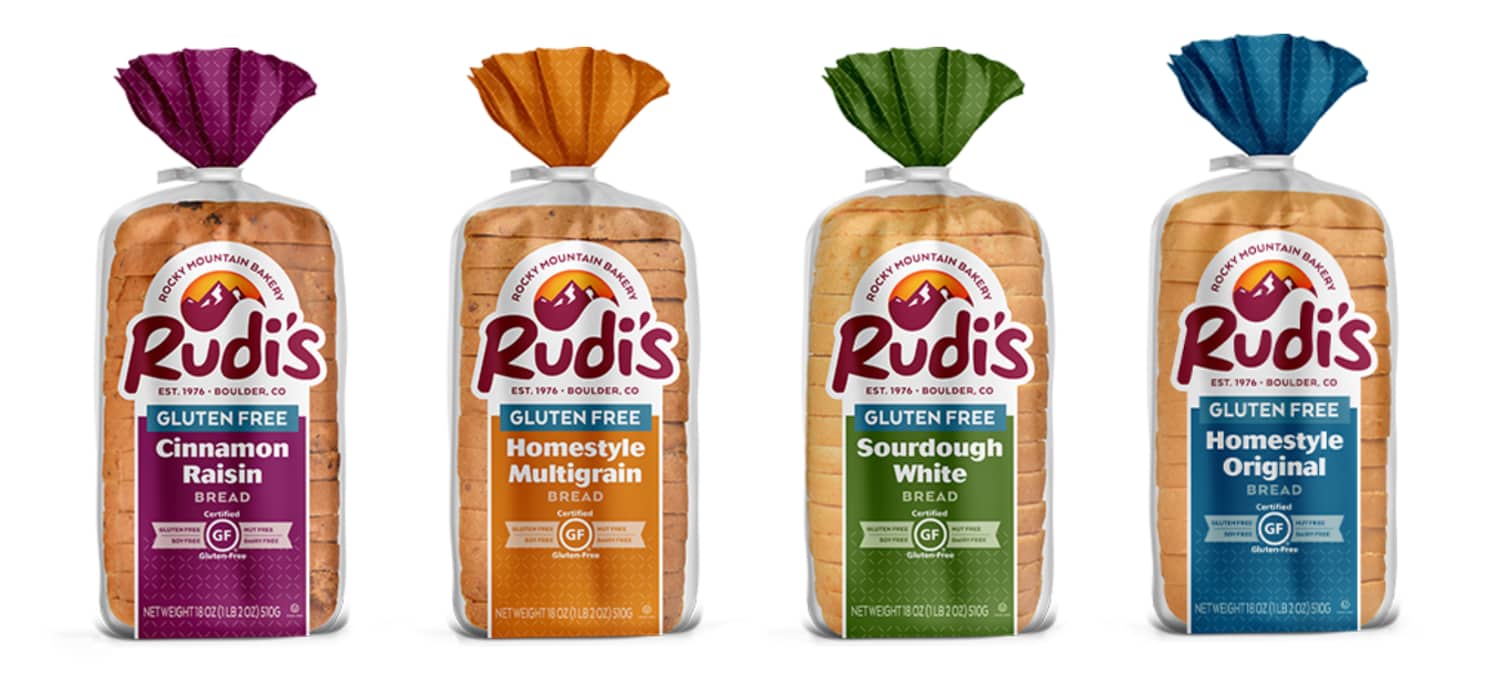
The experience of small-scale production allowed the renewed Rudi’s Bakery to actively experiment with current trends in different directions. By adding more “handicraft” to the products, the bakery has made its bread more attractive to educated consumers.
“Gluten-free foods are certainly important for people with celiac disease, but this is only 2-3% of all consumers,” continues McGuire. “Now there are about 30% of consumers looking for what they call a ‘healthier choice’. Target audience prefers to buy our brands, considering them to be the healthiest choice. Customers like the great taste and beautiful appearance of our baked goods. »
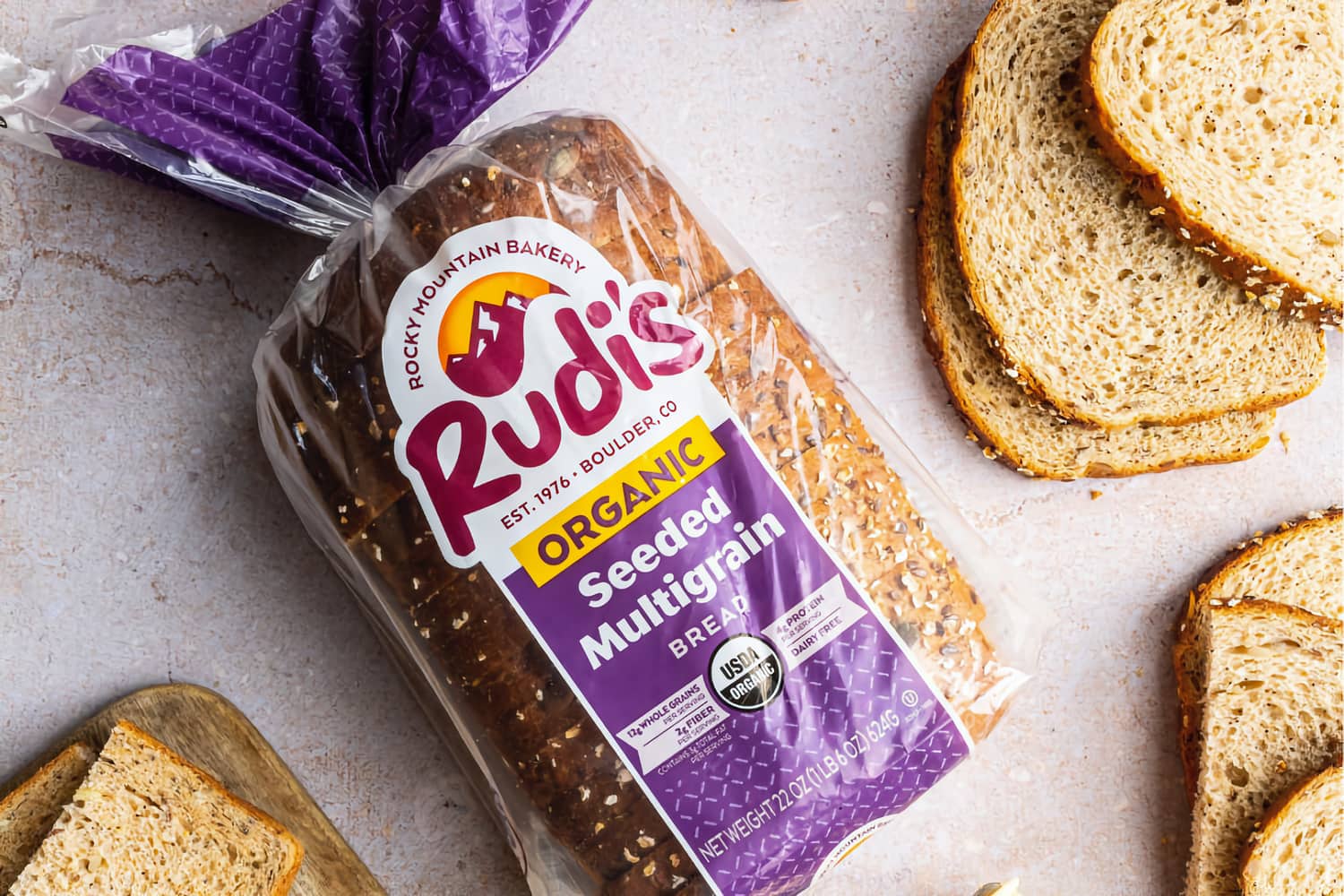
One of these new brands is Rudi’s Rocky Mountain Bakery, an organic multigrain, seeded bread. Made with organic whole grain flour, organic oatmeal, flax seeds, pumpkin seeds, sunflower seeds, and organic poppy seeds, it also has a 24-hour fermentation process, which the company says benefits gut health as well as richer flavor and softer texture.
The novelty contains 12 grams of whole grains and 4 grams of protein per serving.
“We recognize that gut health is becoming more important to our consumers,” says Brian McGuire. «Innovation is at the forefront of our strategy for this year and we plan to bring more unique products to this category in the coming months.»
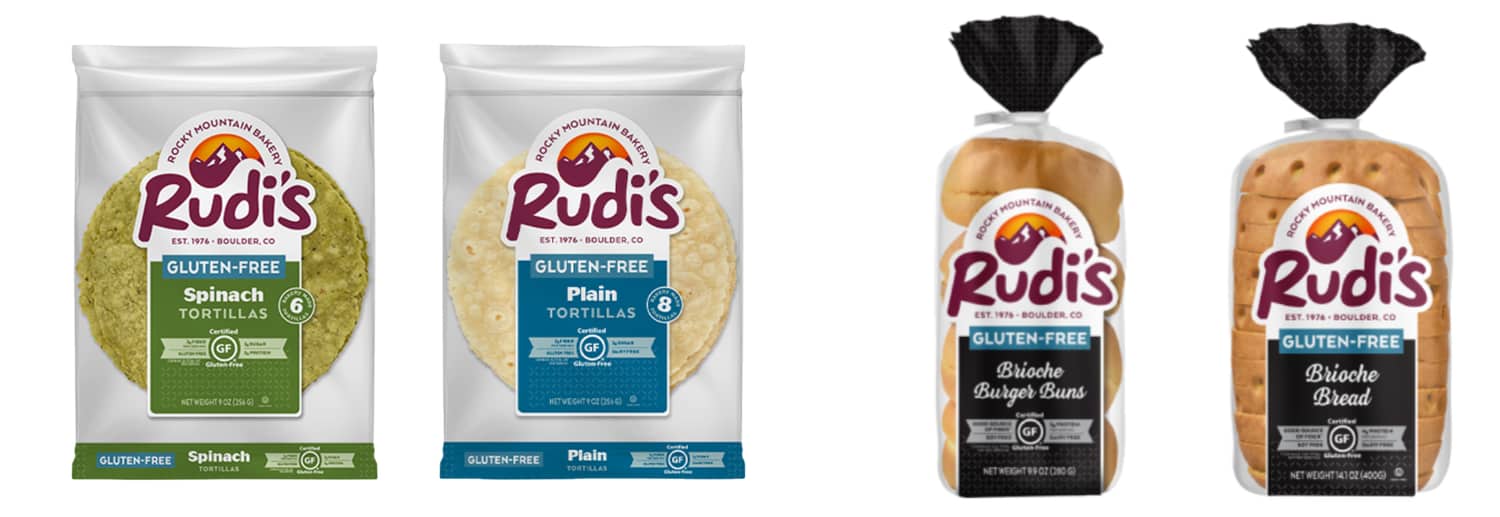
Under the new Rudi’s Rocky Mountain Bakery brand, the manufacturer plans to launch products made according to historical recipes using starter yeast and a long fermentation process of up to 24 hours. Among the company’s new products already on the shelves are six new gluten-free baked goods, including spinach tortillas and new sourdough breads.
Rudi’s plans to add three new additions to its frozen brioche line this fall. The company also hints at another line of organic breads.
Alternative Pizza
Lockdown pushed manufacturing innovation into the background. Fighting to survive, restaurants have largely abandoned their role as driving forces in culinary innovation. On the other hand, food and beverage companies are focusing on sustaining their businesses in the midst of the pandemic.
However, consumers claimed their right. Datassential research notes that three-quarters of the US adult population in 2021 planned to look for new ideas in the field of food and beverage. Increasingly, alternative formulations have been noted to help avoid unwanted ingredients and/or suspected allergens. By resorting to specific diets, shoppers align their food basket choices with personal nutritional goals. The manufacturers had to step up their innovative engine again.
According to the IRI Innovation Report, sales of food and beverage products that require a diet for a healthy lifestyle grew 13% for the year ended December 27, 2020. Sales of low-carb foods reached $136.9 million; ketogenic products — $68.5 million; paleo — $56.9 million; Whole30 Diet — $54.2 million; and foods with a low glycemic index — $19.3 million.
Consumers want to eat not only healthy, but also tasty food. Low carb foods give people on the keto diet that freedom.
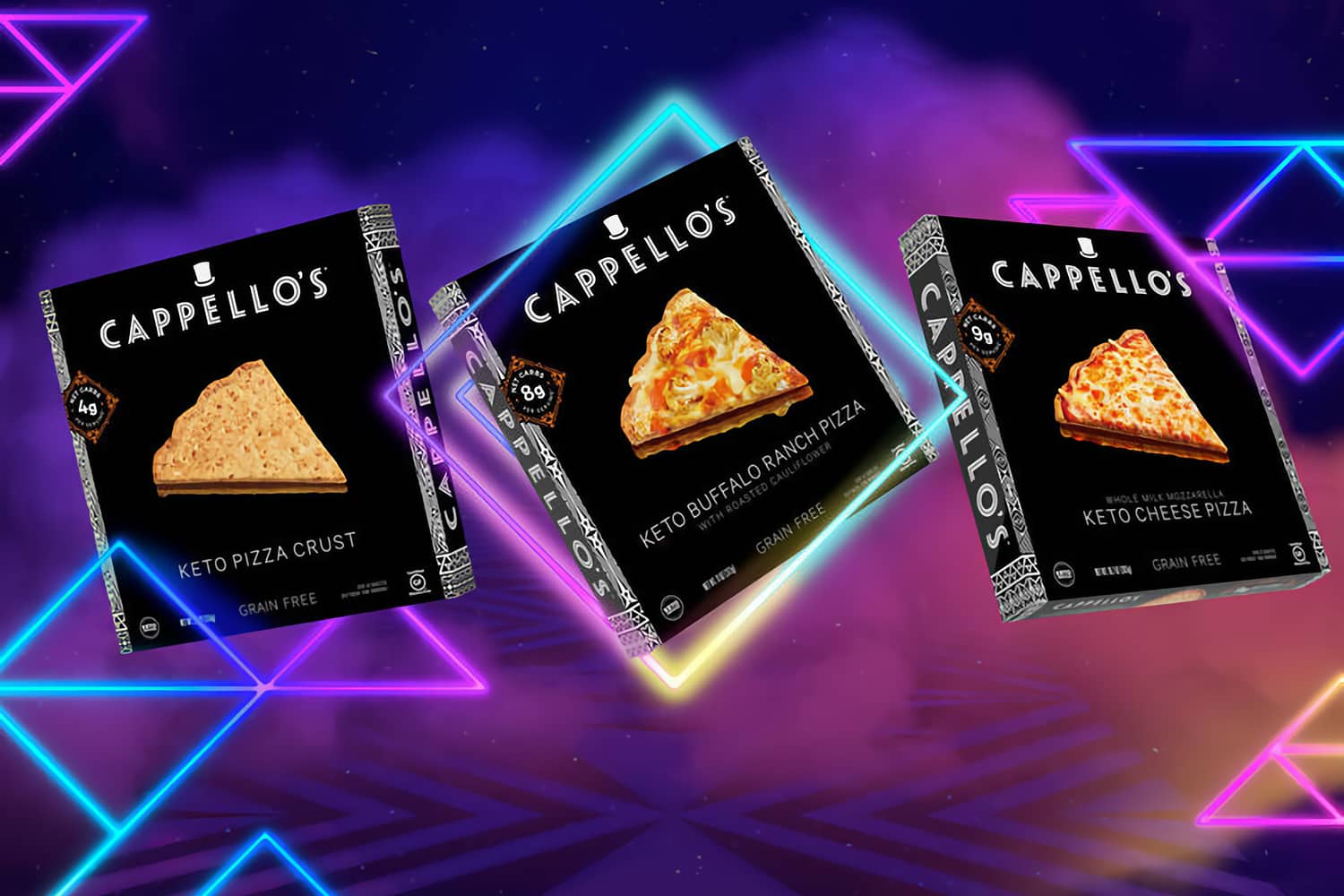
For example, Cappello‘s frozen keto pizza is the most familiar comfort food that everyone loves so much. The manufacturer has released a new line of low-carb pizzas, making it the very first line to be certified as a keto diet. Made with healthy fats and fiber, frozen pizza is suitable for low-carb and keto dieters. All thanks to the almond flour used in the composition without the addition of grain.
Capello pizza also includes turnips, eggs and flaxseed. Nutritional value is filled with the most useful minerals, vitamins, fiber and fatty acids of root vegetables.
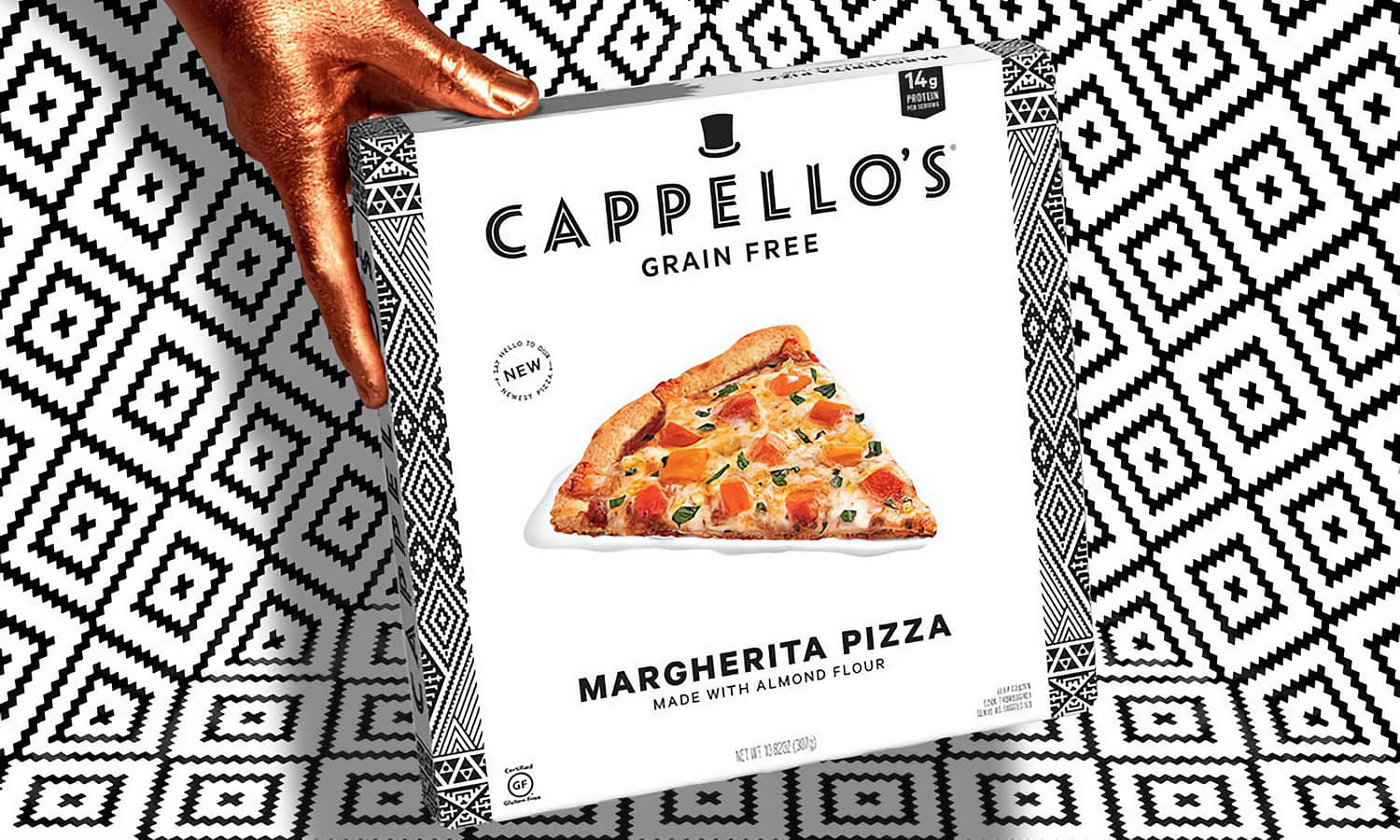
The most popular pizza «Margarita» is made with tomatoes, basil, fried garlic and mozzarella — ingredients that literally breathe new life into classic pizza, providing a bright taste in the range of frozen products.
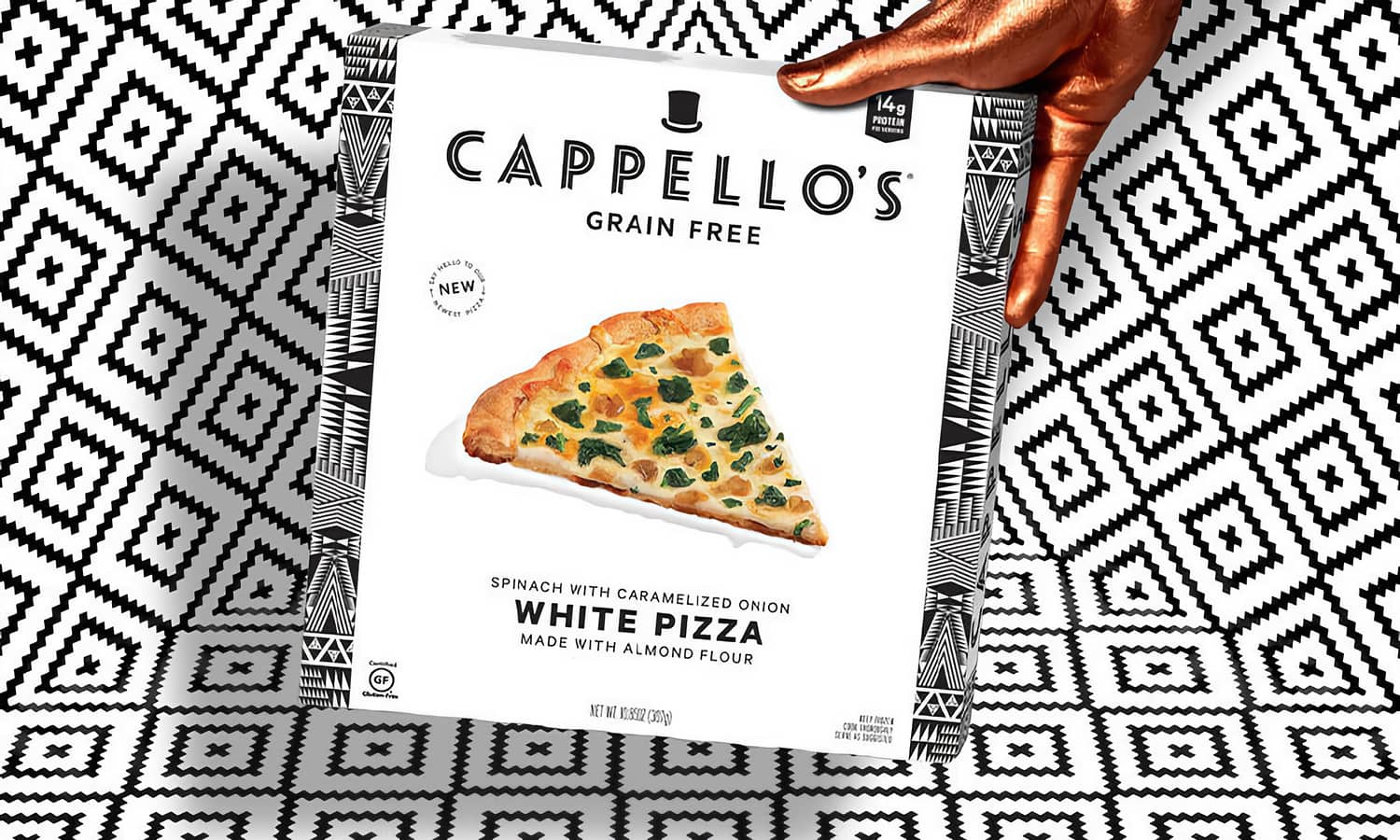
White Pizza features spinach and caramelized onions on top of a creamy white garlic sauce. Since they do not contain any grains, they are a real gift for vegetarians.
Launched in spring 2020, the new items are available in the company’s online store or in Whole Foods Market stores for $12.0 and $9.99, respectively. These keto novelties are sure to be a hit with health-conscious consumers.
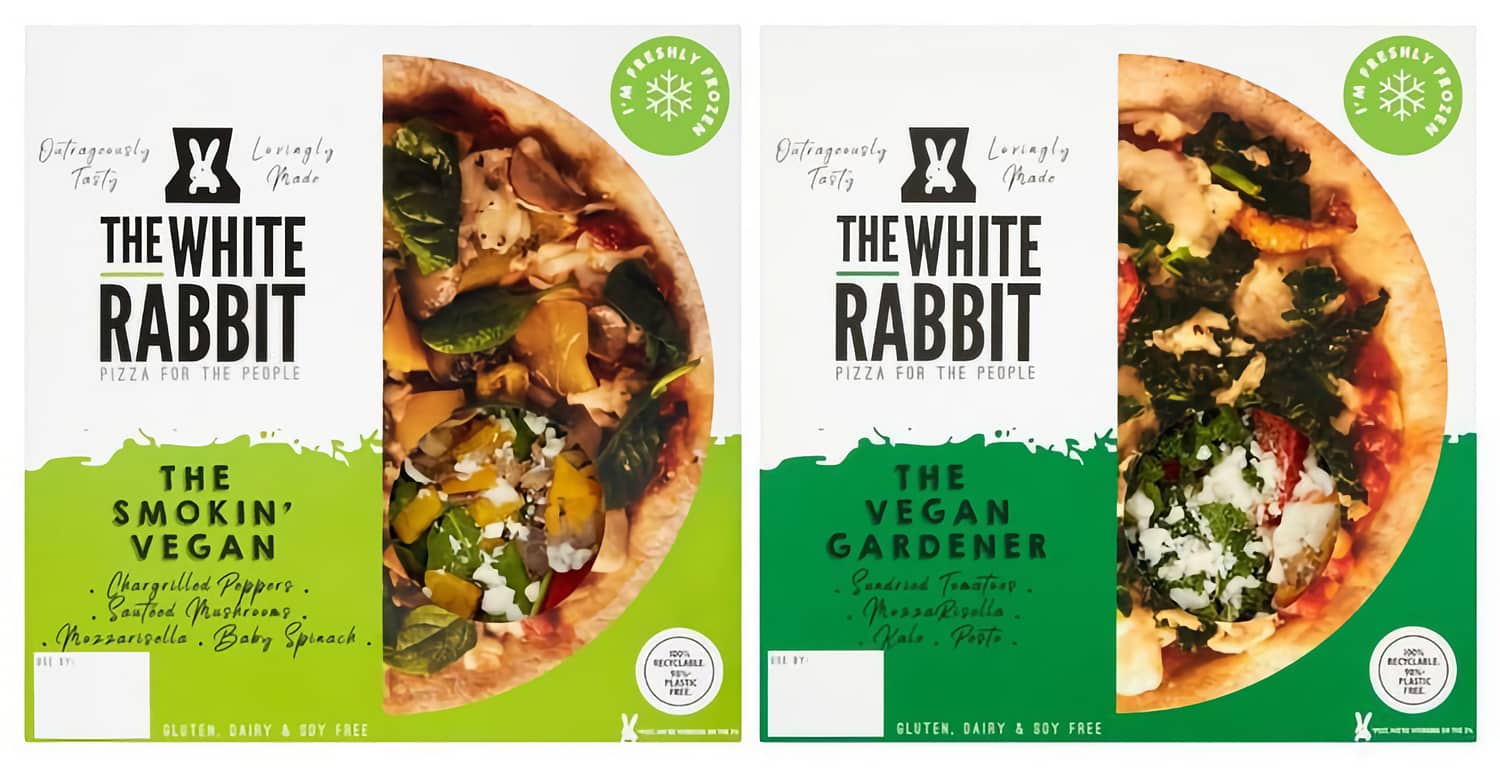
The White Rabbit Pizza Co brand, supporting the demand for low-carb products, introduced its own version of the plant-based pizza. 2 new SKUs — The Vegan Gardener and The Smokin ‘Vegan, made with high quality dairy and gluten free ingredients, are available exclusively from Holland&Barrett stores in the UK.
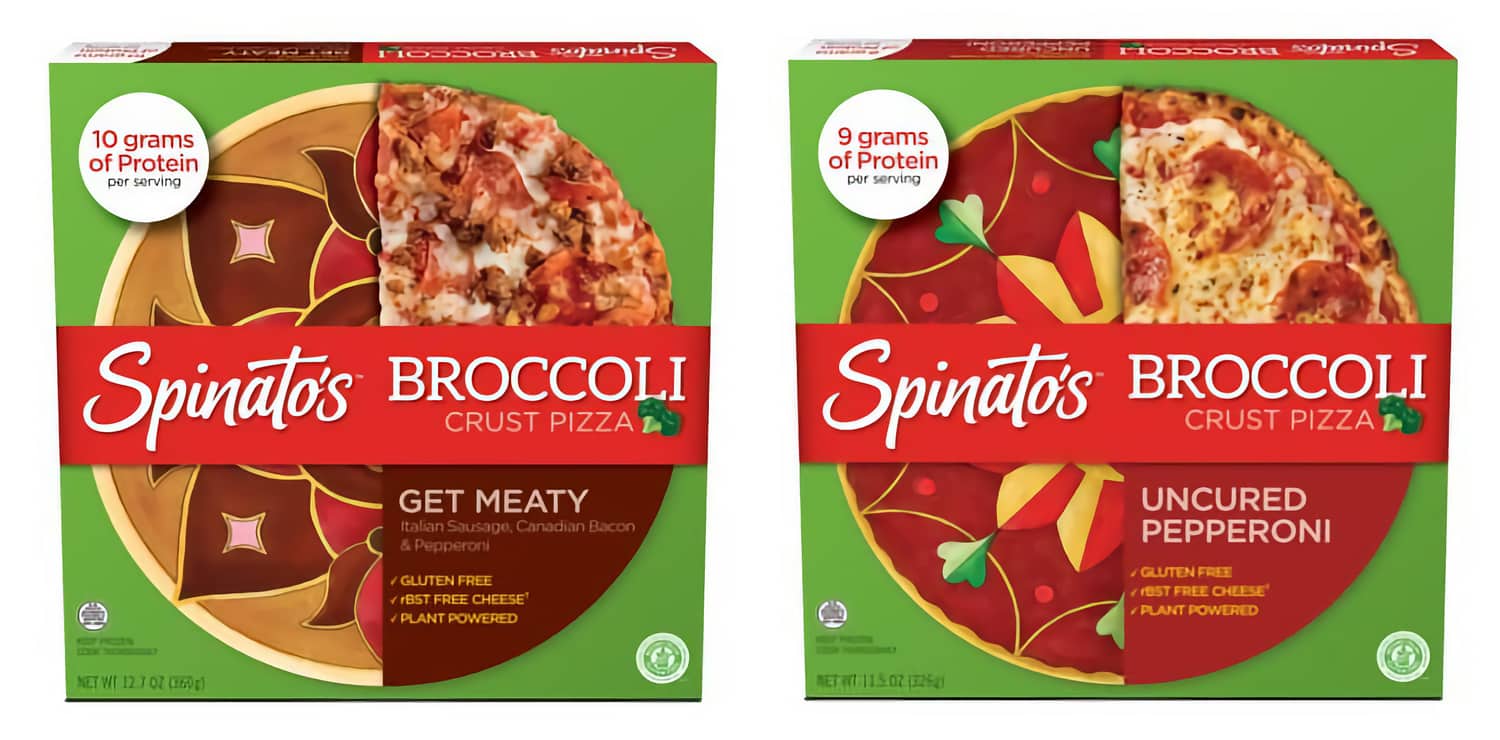
Spinato’s has expanded its range of frozen keto pizza, which the company makes with broccoli. 2 new SKUs — Uncured Pepperoni and Get Meaty are gluten-free and made with the finest ingredients to meet the needs of any consumer.
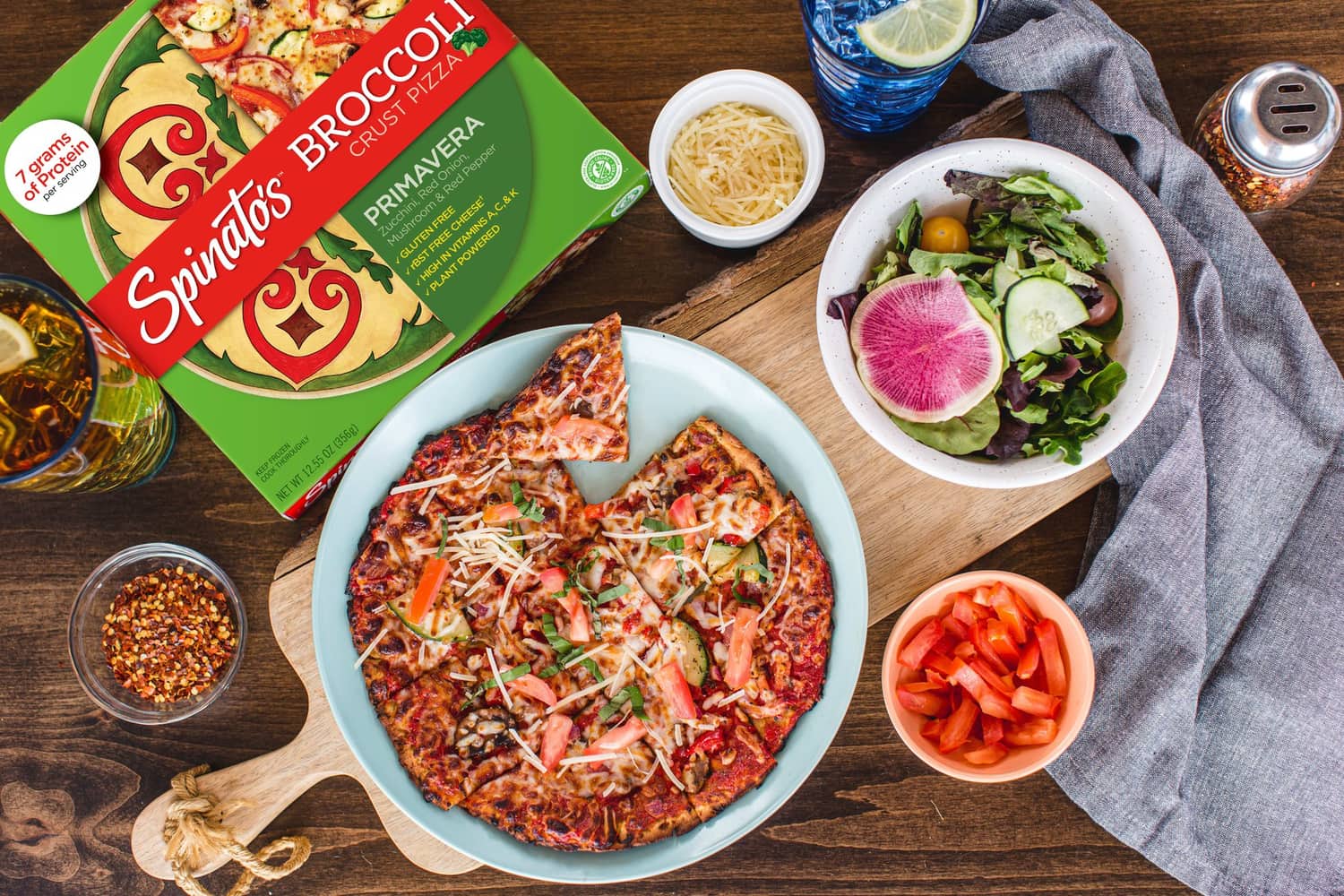
Spinato’s Fine Foods co-founder and president Anthony Spinato explained the company’s strategy as follows: “We created our broccoli-based pizzas to fill the void we see in the pizza segment. Consumers have already appreciated the cauliflower-based products, while the gluten-free pizza is completely tasteless and overloaded with unhealthy ingredients. »
Broccoli’s flavor and nutritional value is far superior to the cauliflower from which other brands such as Califlour, Califlour or Califlower make their products. Spinato’s believes that their protein-rich broccoli line (which, by the way, now has six flavors), can compete not only with «healthy pizza», but with the entire category of frozen pizza.
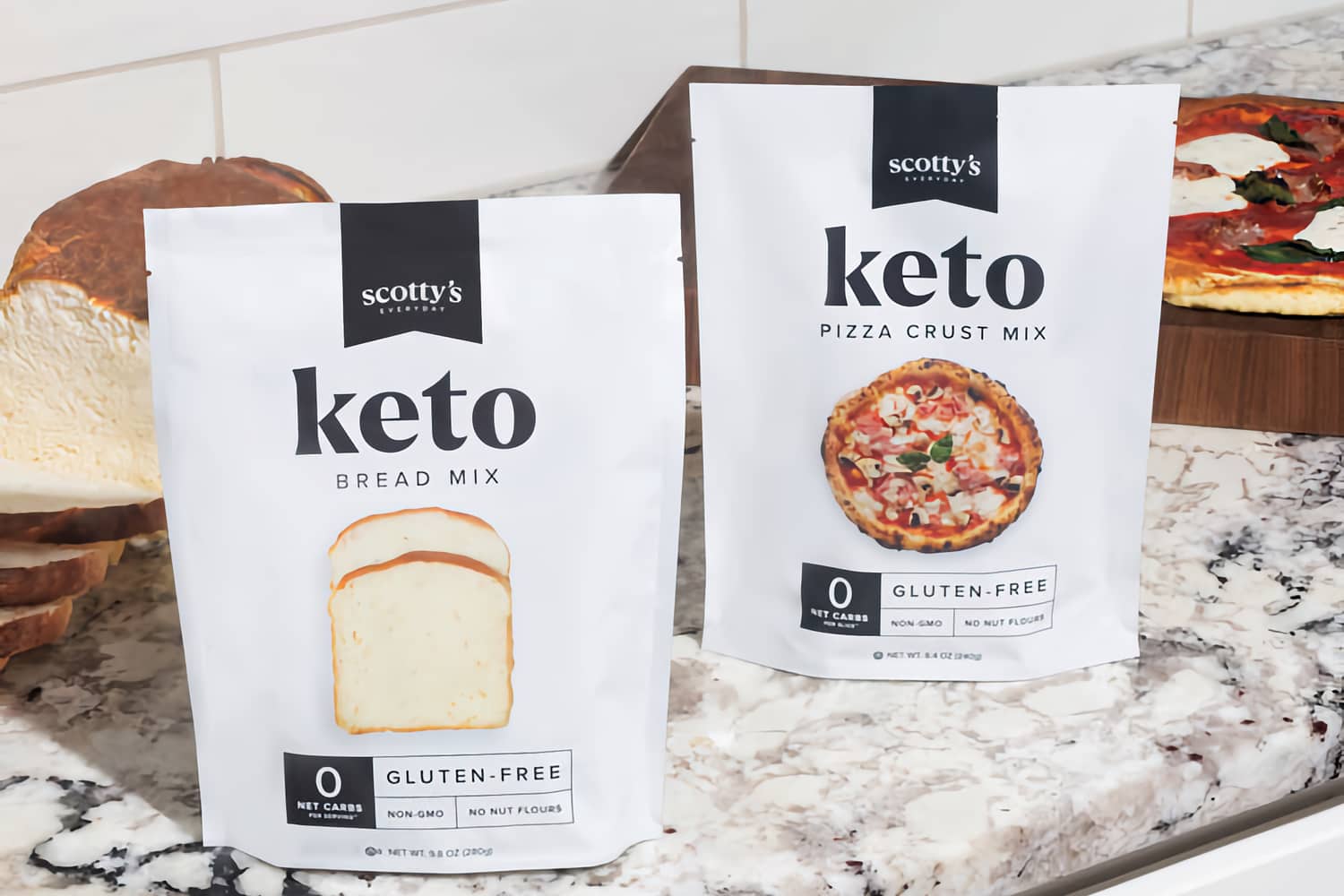
If you want to make your own homemade keto-friendly pizza, it’s easier than ever with Scotty’s Everyday Keto Pizza Crust Mix. The product is free of gluten, nut flour and no carbohydrates.
The versatile mix can also be used to make other baked goods such as focacci, but it is precisely as a pizza base that this product is firmly entrenched in the DIY segment, continuing the do-it-yourself story we told you earlier.
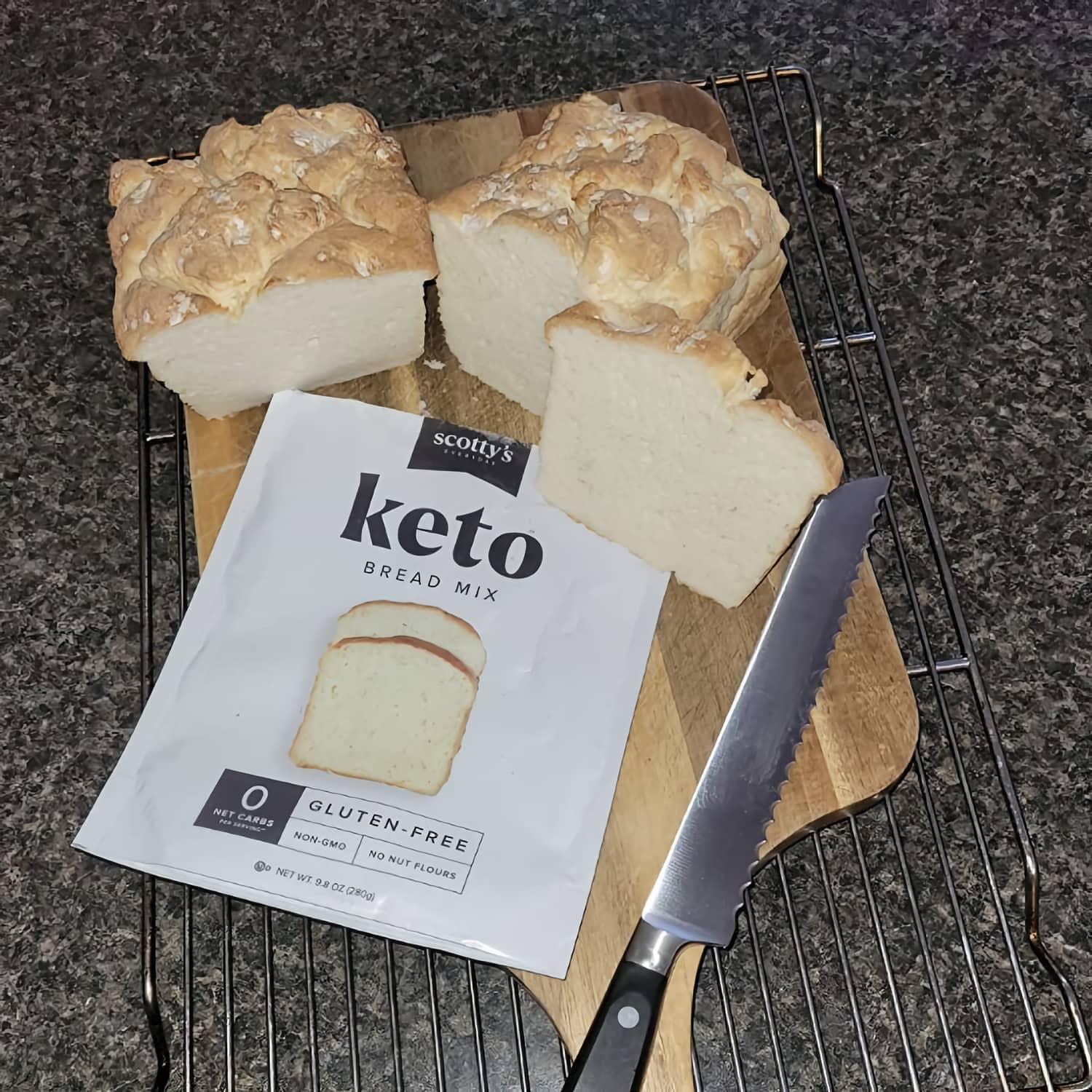
Inspired by the success of its Keto Bread Mix (Amazon’s bestseller) launched in late December 2020, the pizza base mix was the intended move for Scotty’s Everyday. Keto Pizza Crust Mix, a zero-carbohydrate, gluten-free and nut flour-free product launched in April 2021, is practically a favorite in the brand’s lineup.
As founder Scott Sturgill describes: “When we launched the Keto Bread Mix, we received many requests for instructions on how to make pizza with it. We had no choice but to come up with a product that would repeat the success of the Keto Bread Mix. ”
The novelty is extremely versatile. Like Scotty’s Everyday Bread Mix, it can be used to make a wide variety of keto-friendly baked goods such as focaccia, garlic nodules, soft pretzels and calzones. The recipes can be found on the manufacturer’s website.
Keto Growth
Growing demand for fermented foods and various varieties of keto baked goods combined with consumer health benefits, increasing urbanization and consumer choice for pizza made with some sourdough products are among the key factors driving the growth of the healthy confectionery market.
The U.S. sourdough bread market is expected to grow at a CAGR of 8.6% through 2027. According to Research And Markets, the market for healthy paleo and keto baked goods will be $5.51 billion by 2027.
Significant growth is also expected in the Asia-Pacific region. Moreover, countries such as China, Japan and India will make their significant contribution. India is likely to prominently figure in the regional market, thanks to an abundance of local and ancient wheat varieties that are high in nutrients and flavor.
To win in the current market, food and beverage manufacturers must innovate in line with current macroeconomic trends. Bakery brands have great potential to keep up.
The temporary keto lifestyle is gaining worldwide attention and is a long-lasting trend. Analysts expect the category to reach $15.64 billion by 2027. Along with indulging in sweets, convenience, plant-based food preferences, and maintaining health and wellness — by driving forces over time, especially for the millennial generation and high-income households.
